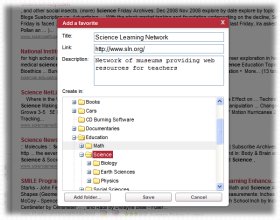|
Education
Web
Viewing 1-3 of 3 total results
A Three-Tier Response to Intervention (RTI) Model
referred to special education if it is determined infeasible to maintain the intervention in the regular classroom (Batsche et al., 2005) Selecting At-risk Students A variety of methods may be used to identify at-risk students. For example, teachers may a...
readily imagined, we will focus solely on reading with particular emphasis on early literacy. This focus is appropriate in that reading deficiencies make up the most frequent profile of students identified for learning disability services (Lyon et al., 2001). The Dual Dis...
1
0
readily imagined, we will focus solely on reading with particular emphasis on early literacy. This focus is appropriate in that reading deficiencies make up the most frequent profile of students identified for learning disability services (Lyon et al., 2001). The Dual Discrepancy Format Low academic performance. The use of RTI to identify students with learning disabilities is based on a dual-discrepancy model. First, the student must be significantly below same-grade peers on measures of academic performance
1
0
http://www.nasponline.org/resources/principals/nasp_rti.pdf#page=1
www.nasponline.org/resources/principals/nasp_rti.pdf#page=1
readily imagined, we will focus solely <span class="highlight">on</span> reading with particular emphasis <span class="highlight">on</span> early literacy. This focus is appropriate in that reading deficiencies make up <span class="highlight">the</span> most frequent profile of students identified for learning disability services (Lyon et al., 2001). <span class="highlight">The</span> Dual Discrepancy Format Low academic <span class="highlight">performance</span>. <span class="highlight">The</span> use of RTI <span class="highlight">to</span> identify students with learning disabilities is <span class="highlight">based</span> <span class="highlight">on</span> <span class="highlight">a</span> dual-discrepancy model. First, <span class="highlight">the</span> student must be significantly below same-grade peers <span class="highlight">on</span> measures of academic <span class="highlight">performance</span>
IV. MEETING THE CHALLENGE Professionals working with struggling readers, including Reading Intervention Specialists, will be called on to take a proactive approach to sharing reading knowledge with other personnel and to work collaboratively. The RTI...
1
0
IV. MEETING THE CHALLENGE Professionals working with struggling readers, including Reading Intervention Specialists, will be called on to take a proactive approach to sharing reading knowledge with other personnel and to work collaboratively. The RTI requirement to use scientifically-based reading research means all educators who teach reading need to be adept with phonemic awareness, phonics, morphology, comprehension, fluency, and vocabulary (among other skills) to support the remediation of
21
0
http://centeroninstruction.org/files/rti_role_definitions.pdf#page=21
centeroninstruction.org/files/rti_role_definitions.pdf#page=21
IV. MEETING <span class="highlight">THE</span> CHALLENGE Professionals working with struggling readers, including Reading Intervention Specialists, will be called <span class="highlight">on</span> <span class="highlight">to</span> take <span class="highlight">a</span> proactive approach <span class="highlight">to</span> sharing reading knowledge with other personnel and <span class="highlight">to</span> work collaboratively. <span class="highlight">The</span> RTI requirement <span class="highlight">to</span> use scientifically-<span class="highlight">based</span> reading research means all educators who teach reading need <span class="highlight">to</span> be adept with phonemic awareness, phonics, morphology, comprehension, fluency, and vocabulary (among other skills) <span class="highlight">to</span> support <span class="highlight">the</span> remediation of
|
